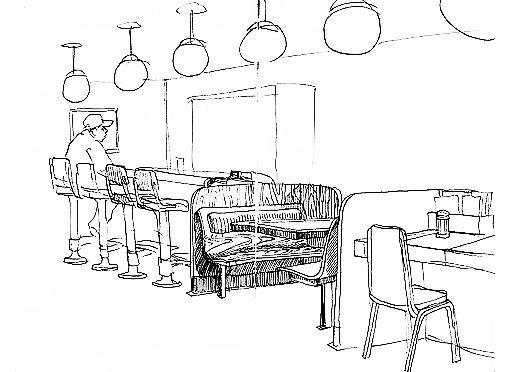I saw you. It was at an old Piggly Wiggly. The kind with swinging doors and neon letters that don’t all light up. I watched you open the door for an old woman who used a walking cane.
You couldn’t have been older than twelve. You swung the door open, then wheeled an empty shopping buggy toward the lady.
You said, “Here you go, ma’am.”
She thanked you. You blushed. It was a fine moment.
I also saw you when you stopped traffic to help that dog. You were driving your FedEx truck, making your route. It was a mutt. Tan and white. A pup with hardly any meat on its bones.
You ran across three lanes of traffic, waving your hands at the cars.
I could read your lips. “STOP! STOP! PLEASE!” you were saying.
Three lanes of traffic rolled to a halt. Our vehicles formed a stand-still line while you coaxed a scared animal out of the center lane.
Once, I saw you help a child in the Home Depot find his mother. The boy was lost. He
walked beside you.
When you found his mother, he ran to her. It was a Hollywood style ending. You stood back several feet to take it all in. Smiling.
And, by God, I saw you.
I saw you pay for that woman’s meal in the Mexican restaurant. The waitress seemed surprised when you suggested it.
She answered, “You wanna do WHAT, sir?”
You whispered, “I wanna pay for that lady’s meal.”
Then, you pointed to a woman across the restaurant. She wore a Hardee’s uniform. She had three kids. They were loud, rowdy, sipping dangerous amounts of caffeine and carbonated sugar.
You paid, then stood to leave. You never got to see the woman’s reaction. But I did. She was shocked. It was all over her face. Before she left, she placed a tip on the table.
Everybody won that…










